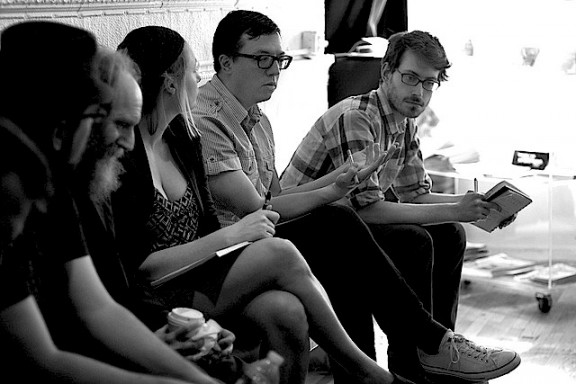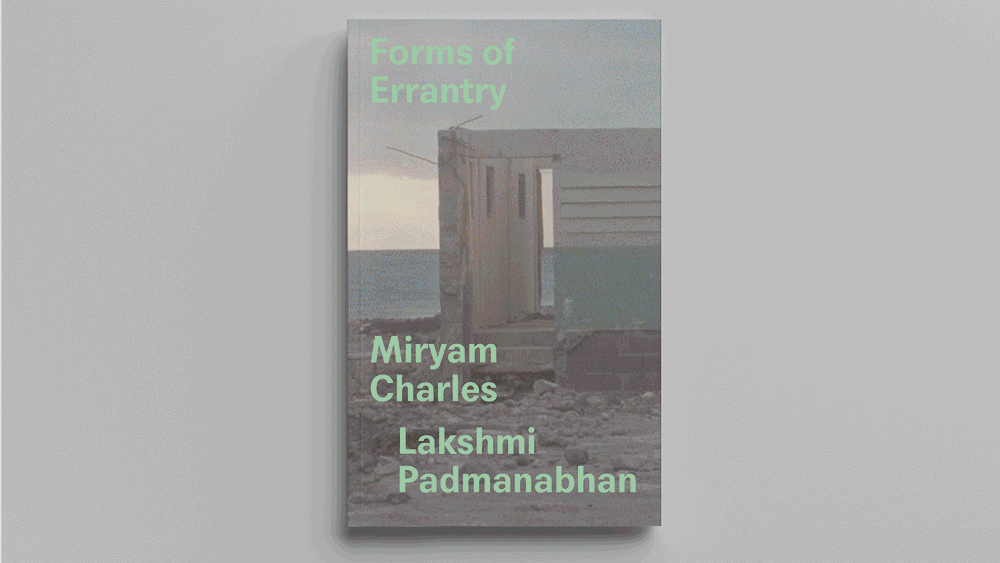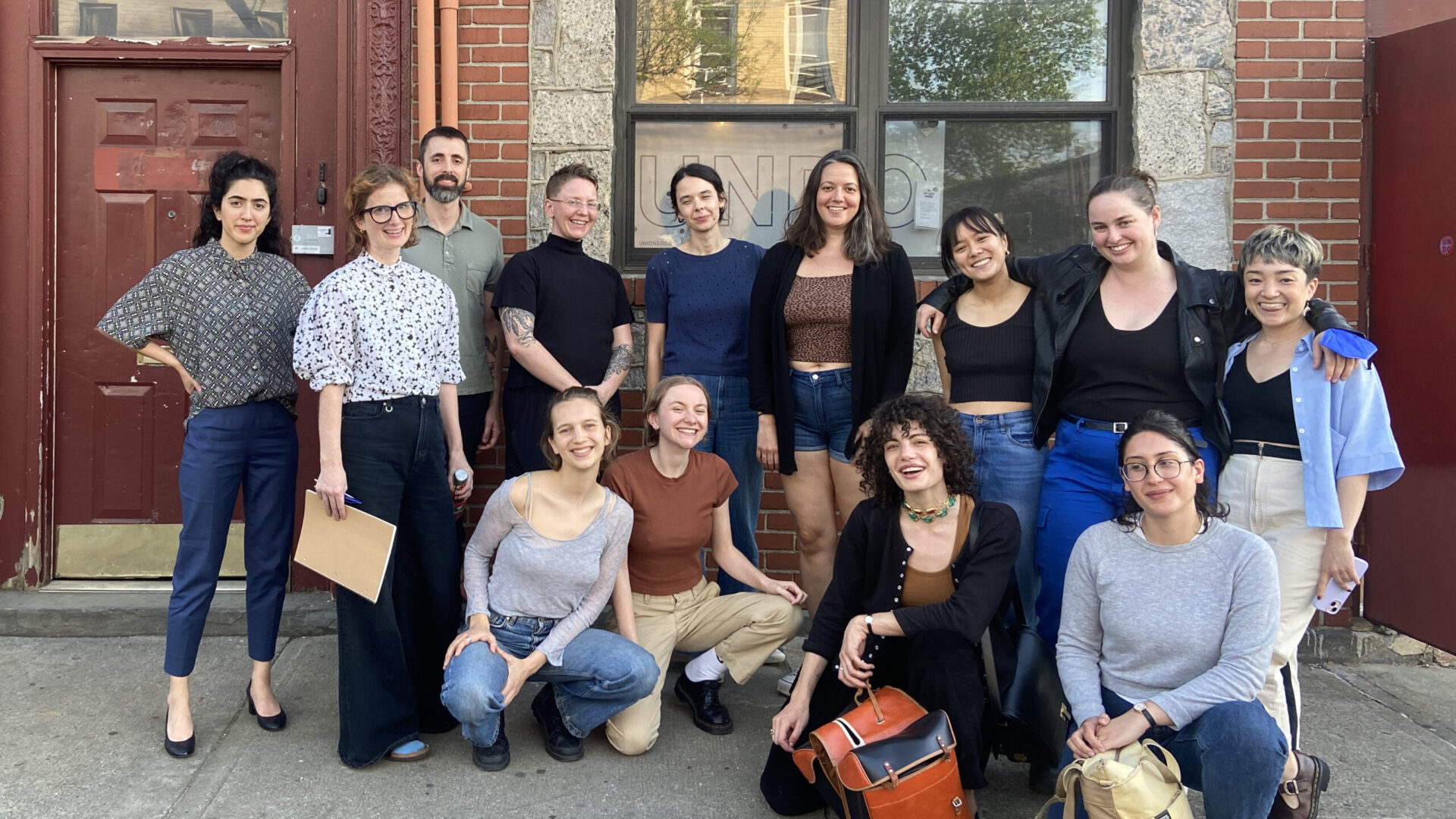Richard Brody: (continued)
But by the fact of having decided to see everything, you are committing your life to the fact of it being important. And so much of criticism is the decision of what not to finish watching. Because we all have a limited amount of time, and we all have a limited amount of space, and we all have a limited of what we can fight for. If criticism is anything at all, it’s not an account of what’s going on out there, it’s prophecy. It’s the generation, in a certain way, the vision of the cinema, not of today, but of tomorrow. In terms of documentary, the recording takes place, and I get a great deal of today, but I don’t get a great deal of tomorrow because the aesthetic component is lacking from an awful lot of what I’ve been seeing. I think that the critic who treats documentary in the same way that he treats fiction, namely: it’s got to bring life passion to it, it’s got to give me something to propel me forward to live. If it doesn’t do that, it doesn’t merit the attention.
One quick word Aaron: if fiction is of any merit, it’s of real life significance. One thing that’s too often overlooked is that fiction is as much a report on what’s going on in the contemporary world, if it is anything at all, as documentary is.
Lisa Rosman:
I look at a movie through two lenses. One is, do I personally like it? And the other is, with the audience I’m writing for, do I think it’s fair to tell them to get a freakin’ babysitter and watch this movie? It’s really a lens I always—depending on the place where I’m writing. With US Weekly, honest to god, my mandate was, would a woman who is thirty and makes a hundred thousand dollars a year read this on a treadmill? So, that’s disturbing. [laughter]
But the point of it is that I’m on the far other end of looking at movies from you guys right now, as documentary makers as we’ve established a lot of you are. The question I really always have is a little bit of the ‘so what?’ factor. Frankly, the question I often ask myself is, does this documentary deserve to be ogled on a large screen? I’m not convinced a lot of documentaries need to be in movie theatres, and I’m not sure how people are going to feel about hearing me say that. I think documentary is an incredibly interesting category. I was curious about the fact that all of us are movie critics who were invited to be on the panel, for example, because I think that there are a lot of interesting docs that are probably best perceived on a small screen. They should be written about critically, but I don’t necessarily know even right now if I always feel comfortable reviewing them as a film critic. There are very few documentaries I’ve seen in my lifetime, I’m sorry to say, that I would hold to the same criteria of every other film I look at.
I agree with your slightly curmudgeony mandate that everybody should drop their DVDs. I feel that if you have the burning urge to make a movie it should not just be because you have something to say, but because you truly relish the medium of film. When I write, I’m always in a quandary when I write my critiques of these because obviously a lot of these topics are earnest and I walked away with something, but I’m not necessarily sure it worked as a film.

Ed Halter:
Unlike what Richard says, I actually have ended up becoming a specialist, although it kind of evolved that way. I tend to write more about experimental cinema, avant-garde cinema, but I see that terminology in an expansive way. Basically looking at any kind of film or video that treats formal issues as a kind of main concern instead of looking at form as a content delivery system. In that sense I want to echo the problems that Aaron brought up. I will often read—they will remain nameless—some of my favorite film critics, who I know to be people who can write about the form of a film, whatever kind, in an incredibly nuanced and erudite manner, just dropping it all when they write about a documentary, just purely talking about the content of that documentary. Likewise I can think of certain venues in the city, that again will remain nameless, where programmers who otherwise have excellent taste and excellent programming when it comes to narrative film or repertory film will show documentaries that just really are purely for the topic matter. And the filmmaking itself is a bit leaden.
With that in mind, one thing I would hope for from any documentary criticism that would emerge would be a much more nuanced understanding of form. One way to achieve this would be a better historical perspective on the field of documentary and non-fiction film in general. I meet a lot of people for whom this history of documentary began with Hoop Dreams, and documentaries were invented by HBO. While that has been an enormous boon to the mainstream acceptance of documentary to the point now where very everyday people will gladly go into a movie theatre and buy a ticket for a documentary in a way that decades ago would have been impossible to imagine, it’s also restricted our idea of what documentary could be. We think they’re narrative, for example. As a critic, I could really care very little about narrative and about stories. I know a lot of you film makers out there are like, I want to be a filmmaker ‘cause I want to tell stories. In my mind, cinema is a visual medium that occurs over time and a story is only one thing that could happen in that time. You know, if you want to tell a story, write a book. That’s what I tend to think. That said, I like watching movies that have stories, but I’m very bored by writing about those stories, I’m much more interested in writing about the visual experience that happened in that time period.
With that in mind, in writing about experimental cinema, I write about a lot of people that verge on being called documentarians, people like Wang Bing, or Jem Cohen, or Deborah Stratman. I think those are the kinds of artists people should be looking at because they’re the ones who are really pushing the form of documentary and doing things with it we don’t often see. Even if you don’t like that work, that’s something as a documentary filmmaker you have to see, because you have to understand how plastic and expansive the form can actually be.
Colin Beckett:
I’ll be moderating this with Steve, so I think we should start. A lot of people have talked about what they don’t like about documentary. This is a documentary art space. We have artists in every week and almost nobody admits to liking documentary. Everybody distinguishes what they do from documentary as a whole. So what do you like about documentary? What are documentaries good for?
Thom: There were so many little barbs that came up, I’m trying to figure out how to navigate them. [laughter] I’m not even sure that I feel the need to necessarily defend the form of documentary, or perceived narrowness of the form that some of my colleagues here expressed. I mean, I think you just need to look at the line up of the Sundance Film Festival, the Toronto Film Festival, Hot Docs, which just concluded—there are tens of thousands of people going to these festivals to watch films on a big screen that are made in a multitude of styles. I probably don’t need to assert this to this crowd, but I want to put it out there. You can come to Stranger Than Fiction any Tuesday and see something… this year we’ve shown fifty films, all of which very much hold their own on the big screen. People are selling out that IFC Center theatre to see them, so there’s more people who agree with me, you don’t have to take my word for it.
I think if you look at, here we are in May with four months of films behind us, and you could tick off films like Exit Through the Gift Shop, or The Oath, or Marwencol, which has not made it to New York City but I’m sure will by the fall. Like Life 2.0 that I’m going to be showing Tuesday at Stranger Than Fiction. None of these films are films that would be pigeonholed as a kind of social issue documentary, or a film that’s putting its subject matter ahead of its filmmaking. They’re all very different approaches to cinema.
I’m extra deep in this world, to the extent that I don’t have as much time as I once did to take in what’s happening in fiction film, or to sample the experimental work that Ed is such a proponent of, and it’s a very rewarding world to live in. I feel like year after year, I’m never getting bored there.
Order Richard: It’s an interesting thing about the word documentary, I always took it for granted until about eight or nine years ago. I was in Paris and there was a screening of Pedro Costa’s film In Vanda’s Room which just came out on DVD, as you probably know. The screening was being presented by Jean-Marie Straub. And after the screening, there was a public discussion. And, one of the members of the audience asked Costa: Is this film a documentary or fiction? And before Costa could answer, Straub—who if you know, he has a kind of raucous voice, it’s kind of Miles Davis times Heidegger—jumps in, and says: “Documentary! Documentary? Who uses documents? The police use documents. Why do you even use the word documentary?” Not that I ever thought that Pedro Costa was in fact preparing a police report on Vanda and the other residents of the Fontainhas district of Lisbon, but I actually wondered at that point why anybody would ask this question. Clearly Vanda is a real person, and this was Vanda’s actual apartment, and at the same time it was clear that something like a character was constructed in a context that differed significantly from what Vanda might be doing on an ordinary day if Pedro Costa wasn’t present with her there in the bedroom. And, essentially the Heisenbergian side of Costa was extremely strong, meaning his influence on the events taking place around him, was sufficient to turn it from a mere recording of pre-existing reality to some psychological construct that resembled fiction.
With many of the best fictions, I’m aware of the real world context, and with many of the best so-called documentaries, I’m aware of the construction of character. Salesman, for instance. So, I’m not entirely sure why it’s necessary as a critic to consider oneself a specialist.
Lisa: This is such a short sentence, but the other funny thing to me about specializing as a critic is that so few of us can actually support ourselves at all right now as critics, that the luxury of specialization seems a little far afield to me. We’re in trouble too, really, right now, as an industry.
Richard: As an industry, although as a practice I think criticism is absolutely thriving.
Lisa: Sure, but we’re talking about people who want to be able to pay their bills and not live in their parents’ basement.






This is a great document of a great discussion & I want to thank UnionDocs for sharing it.
Pingback: Underground Film Links: May 22, 2011 | Bad Lit